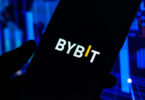The leading South Korean chat company, Kakao, is the latest messaging company to announce its entry into the blockchain arena. The company has set up a blockchain subsidiary in Japan called Ground X. This follows the eye-popping ICO by Telegram which has raised $1.7billion so far. That dwarfs the $100m ICO from Kik last year. The reason for the fuss is that chat apps could become the primary method for consumer payments.
This week, Kakao’s co-CEO Joh Su-yong, quashed speculation that Ground X or Kakao would seek an ICO. Kakao recently raised $1 billion in funding. Su-yong said of Ground X, “it will be an open platform that can be shared by developers and tech firms not just in Korea but also across Asia,” according to The Investor (Korea). Together with partners, the company wants to create a blockchain token economy in Asia.
The creation of this token economy is the reason why businesses across all consumer sectors should take note.
Asia
WeChat the leading Chinese chat app is an excellent example of the connection between chat and wallet. It has the second largest Chinese mobile wallet, WeChat Pay which plans to go international.
Another leading mobile wallet is Alipay / Ant Financial, part of the Alibaba group, and thought to be the most valuable fintech in the world ($80 – $100 billion).
At the China Development Forum last weekend, Ant Financial CEO Jing Xiandong said “We have filed one of the largest numbers of blockchain-related patent applications. And we are working hard to overcome the technological barriers to bring it to widespread use” according to China Daily.
He continued “Though today we have not seen any valuable application scenarios for the cutting-edge technology, I believe in two to three years, its true value will be pronounced in large-scale use.”
Telegram
The encrypted messaging organization with 200m users issued a WhitePaper to support its TON ICO. The document is clear in the high-level business justification but unusually light on technical details. A few excerpts clarify the business relevance.
“The blockchain ecosystem needs a decentralized counterpart to everyday money — a truly mass-market cryptocurrency. The established blockchain networks don’t have the capacity to replace VISA or Mastercard.”
“As of October 2017, more than 800 000 unique third-party bots are regularly used by 52 million Telegram users. These bots can already accept credit card payments from users in 200 countries via eight providers connected to the Telegram Payments Platform. In the future, by using their verified IDs in conjunction with bots that accept credit cards, Telegram users will be able to buy and exchange cryptocurrencies in a frictionless and legally compliant way.”
The whitepaper states the intention to overcome weaknesses in current cryptocurrencies by providing speed and scalability, intuitive user interfaces and an engaged user base.
Despite Telegram’s impressive achievements, some are surprised that credible institutions have been willing to invest so much money in this ICO. Apparently investors funds are locked for 1-2 years. The tokens are connected to an organization where the team moves around the world. There isn’t even a website for the ICO.
Conclusion
The concept of chatbots as sales reps is already here. Combined with a ready audience and a convenient payment mechanism, the Asian chat-bot-pay vision could migrate onto the blockchain and spread across the globe.






